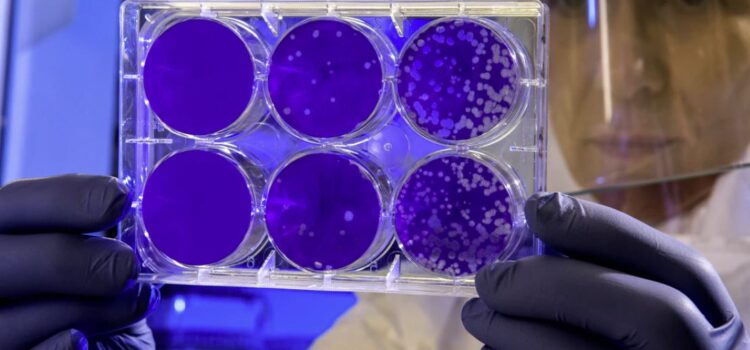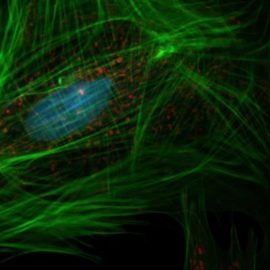

This article is an excerpt from the Shortform book guide to "Gut" by Giulia Enders. Shortform has the world's best summaries and analyses of books you should be reading.
Like this article? Sign up for a free trial here .
What is the role of bacteria in the gut? How does the gut microbiome help keep your body healthy?
Most of the bacteria in your body live in your gut. While scientists are still discovering everything they do, it’s clear that these bacteria serve several important functions, including keeping us healthy and providing us with nutrients.
Keep reading to learn about the role of bacteria in the gut.
The Role of Bacteria in the Gut
Our bodies are filled with and covered in microbes—tiny organisms that can only be seen through a microscope. Enders claims that 90% of the cells in our bodies are microbes. Taken together, these microscopic organisms form what scientists call your microbiome, an ecosystem of particles operating inside your body.
Almost all of the bacteria in your microbiome live in your gut. Enders puts the number at 99%, with more than 1,000 different species present.
(Shortform note: New evidence has called into question some of the numbers that Enders uses in this section. A recent study suggests that microbes constitute just 57%of our cells, not 90% as Enders claims. Furthermore, other estimates suggest that there are 300 to 500 different species of bacteria in the gut, not 1,000.)
Let’s take a closer look at the roles of bacteria in our gut.
Function #1: Training the Immune System
According to Enders, the bacteria in your gut train your immune system, helping you to fight off infections, viruses, and bad bacteria. She explains that your gut holds microbes in the mucus membrane, an area that prevents them from being absorbed through the gut wall. This ensures that bad bacteria won’t impact other parts of the body and cause sickness.
Enders describes the mucus membrane as a testing ground for the immune system. When your immune cells in the mucus membrane come in contact with the microbes held there, they learn to distinguish the good bacteria from the bad. In the future, this training will help your immune cells kill the bad bacteria while leaving the helpful ones alone in other parts of the body.
We Need Further Research on Bacteria and the Immune System

———End of Preview———
Like what you just read? Read the rest of the world's best book summary and analysis of Giulia Enders's "Gut" at Shortform .
Here's what you'll find in our full Gut summary :
- How your digestive system works and why it’s important to keep it healthy
- How tiny organisms in your intestines influence your immune system (and possibly your mood)
- What your appendix actually does






